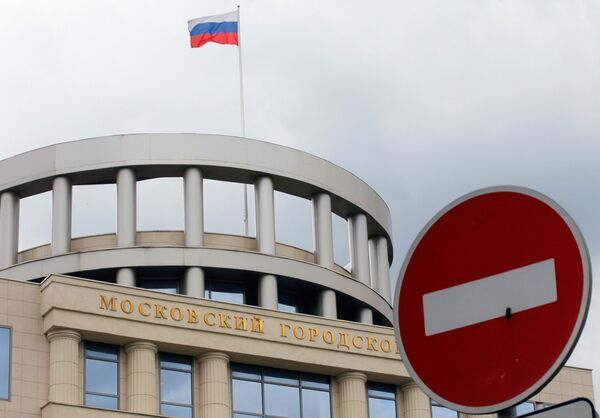A group of youths was found guilty of a series of attacks in Moscow on Thursday, including throwing Molotov cocktails at a district Federal Security Service office.
The right-wing nationalist Autonomous Combat Terrorist Organization, founded by chemistry student Ivan Astashin, started its attacks in 2009. Police believe the group committed at least eight attacks on police officers and people of non-Slavic appearance in 2009 and early 2010.
According to the indictment, the group’s members hurled a Molotov cocktail at a district office of the Federal Security Service (FSB) in southwestern Moscow on December 20, 2009. They also attempted to set fire to police departments in northeastern and eastern Moscow and destroyed property belonging to people of non-Slavic appearance.
Ten members of the group, all in their late teens when the attacks were carried out, were found guilty of terrorism, illegal making of bombs and weapons, property damage and humiliation of the dignity of people on the basis of race or nationality.
Nine students were sentenced to prison terms of up to 13 years. The tenth group member was given a 3-year suspended sentence.
The Moscow City Court also ordered them to pay over 1.5 million rubles (around $51,000) in compensation for damage.
Eight group members pleaded guilty of carrying out the attacks, but rejected charges of terrorism, saying the attacks were “an act of hooliganism, not an attempt to distrupt the constitutional system.”
According to investigators, the group’s leader Astashin, who was sentenced to 13 years behind bars, used his knowledge of chemistry to make bombs to blow up cars and shops owned by people from the Caucasus.
Vladimir Sorokin, a defense lawyer, said the decision to classify the group’s attacks as “terrorism” instead of “hooliganism” will be appealed in a higher court.
“Perpetrators must stick to a certain ideology for their actions to be classified as terrorism,” the lawyer said, adding that the defendants “fell under bad influence” of TV reports about riots at Moscow’s Manezh Square and in Paris.
Sorokin says that the group’s members have never put forward any political demands or tried to influence state policies, but prosecutors argue that the attacks were aimed at intimidating people and pushing the authorities into tightening immigration policies.


